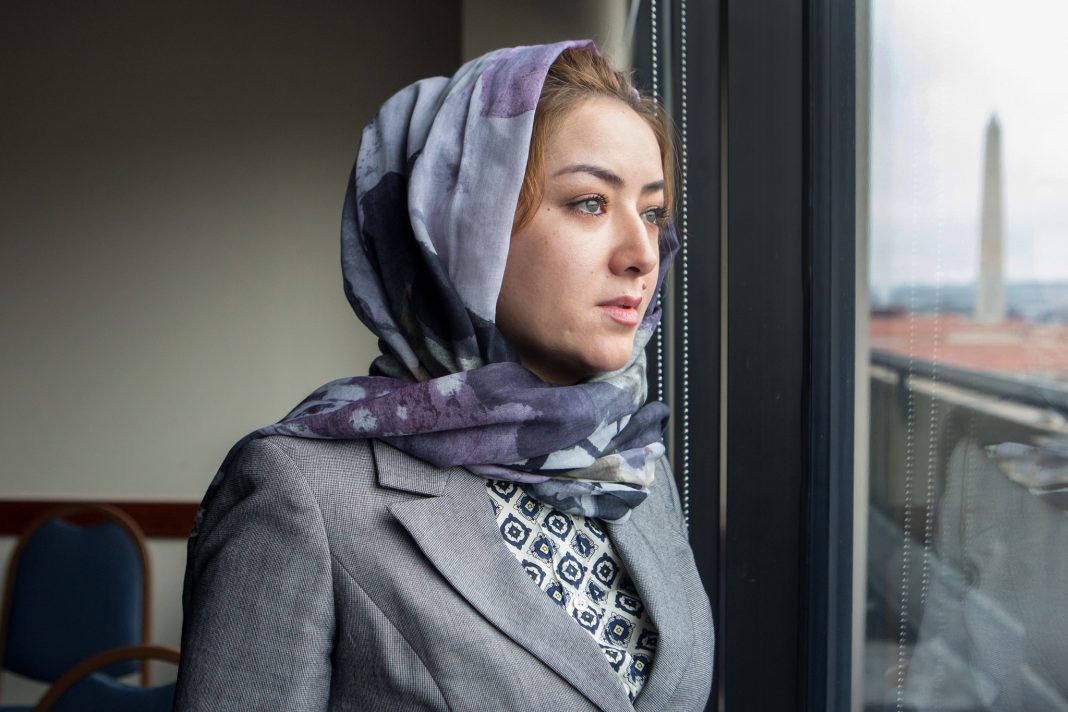Uyghurs in China
By Ibrahim Fadel, Issue 2 - January 2020

Mihrigul Tursun, former Uyghur detainee. Photo credits to D.A.
Peterson
Uyghurs are a group of
Turkic-speaking Muslims from Central Asia. Over eleven million Uyghurs live in China. Most of them reside in the
autonomous Xinjiang region in western China. Imperial China first seized the region in the middle of the 18th
century, but the Uyghur always resented Chinese domination. They briefly declared independence in 1949, but the
Communist Chinese were able to reincorporate them into the People’s Republic. They were given special status as
an autonomous region, but in recent years, China has taken steps to incorporate it more directly under its
control, by encouraging ethnic Han Chinese to relocate to Xinjiang. This in turn resulted in a renewed Uyghur
separatist movement.
The current Chinese President Xi Jinping has imposed a draconian system of control this region. The Chinese
government, relying on sophisticated surveillance technology, combined with very strict policing, are
systematically oppressing the Uyghurs in Xinjiang . Government officials have even installed invasive
surveillance software on Uyghurs’ phones. This software downloads users’ telephone calls, text messages,
contacts, calendar entries, and apps. Facial detection scanners and cameras are everywhere, even in mosques. The
Chinese government has also engaged in the destruction of the region’s historical architecture and mosques.
The worst violation of Uyghur rights has been the arbitrary imprisonment of up to a million or more Uyghurs in
what are effectively internment camps, although China calls them “Vocational Education and Training Centers”.
China insists that its crackdown on the Uyghurs is a legitimate response to a national security threat that
Uyghur separatism represents. Chinese police arbitrarily arrest Uyghurs, and detain them in these camps, often
with no trial, or accusation of a crime. According to the US State Department and the UN, China holds at least
one million Uyghurs in these internment camps.
China’s policy of mass surveillance and detention became much more severe since 2016. China has pressured
numerous countries, such as Egypt, Malaysia, and Pakistan, to deport Uyghur students back to China, where many
are “disappeared,” never to be seen again. Displaying any behaviour that the Chinese government deems “foreign,”
such as praying or wearing a beard, may result in immediate imprisonment. The Chinese government has said these
actions are necessary to halt the spread of Islamist militancy. Because the Chinese government has placed severe
restrictions on information flow about these camps, initially even denying their existence, little is known with
certainty about what takes place inside. We have seen reports of organ harvesting and medical experimentation as
well as prisoners being forced to speak Mandarin and study communist propaganda.
On arriving to China to visit her parents, Mihrigul Tursun, a Uyghur woman was immediately handcuffed, and had a
hood placed over her head. After undergoing several rounds interrogations (some of which included torture by
electric shock), she and her three children were imprisoned. After many weeks without seeing her children she
was allowed to see them through a glass window. She noticed holes in their necks where they were operated on.
The next day, she was shown the corpse of her eldest son. She later escaped from China back to the United
States, where she provided detailed testimony to the National Press Club. She described torture, and beatings as
regular occurrences within the camps. She said detainees are forced to drink alcohol and eat pork, in violation
of Islamic rules proscribing both. Others have reported sexual abuse, including rape and forced abortions. She
also said they were sometimes made to take unknown pills, which would induce fainting, bleeding or cessation of
menstruation.
These internment camps represent one of the most wide-spread and large-scale ongoing case of human rights abuse
in modern history. Despite that, only twenty- two of 193 members of the United Nations, have signed a joint
letter to the UN Human Rights Council urging China to close the camps. An astounding 38 countries have signed a
letter praising China’s work in Xinjiang. There seems to be no end in sight to the Uyghurs’ suffering.
Unfortunately, the international community has failed to educate the public or stop China. Although we know
what’s going on, nobody seems to care enough to risk their relationship with China. I urge you, however, to
remember the Uyghurs’ plight and tell your friends about their situation.
